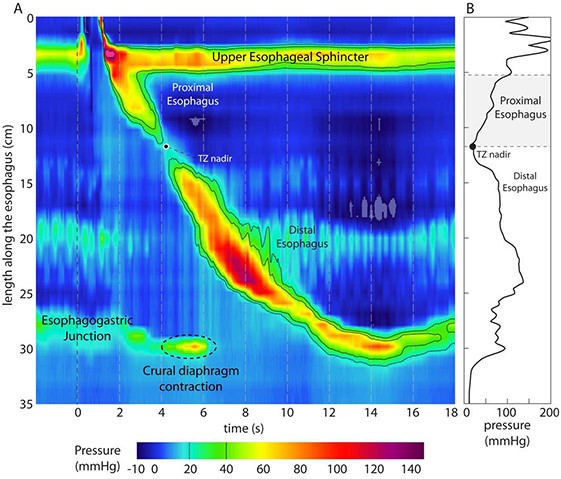Disease Diagnosis
- Chest pain
- Reflux
- Difficulty in swallowing

What is the Esophageal Manometry Test?
Esophageal manometry test is a simple diagnostic procedure to check the functioning of esophagus- the muscular tube like passage connecting the throat with the stomach. A muscle called sphincter valve is present at the end of the esophagus which prevents the reflux of acid from stomach back into the oesophagus. The manometry test determines the functioning of this valve to establish the overall health of esophagus.
The step wise procedure of the test is given below:
- In the esophageal manometry test, the gastroenterology doctor first sprays your nose with a gel that numbs your nostrils.
- Then, they insert a thin tube into your nasal cavity and pass it through your throat and esophagus into the stomach. This tube is pressure sensitive
- You are then required to swallow small sips of water and the pressure sensor records the pressure of the valve and the pattern of its contractions as you swallow
- Once the required recordings are made, the tube will be removed slowly from your nose.
- Any abnormalities in the pattern can be used to detect unusual functioning of the esophagus. The entire process usually lasts 30 minutes.
Conditions Diagnosed through Manometry Test
Esophageal manometry test is generally administered when a patient constantly experiences difficulty in swallowing. Some other conditions in which the test can be used for diagnosis include:
- Chest pain
- Achalasia cardia
- Esophageal spasm
- Ineffective motility
- Hiatus hernia
- Scleroderma
Risks and Precautions of Esophageal Manometry
Esophageal manometry rarely has any complications. However, discomfort during the test is quite common. Patients usually gag while the tube passes and experience slight discomfort in the nose and throat. Watery eyes are also very common during the process.
Even after the manometry test ends, you might experience a sore throat with minor chances of a nosebleed. However, all of this dissipates within a few hours of completion of the surgery. In case you experience severe side effects, you can immediately consult with the gastroenterology doctor.




